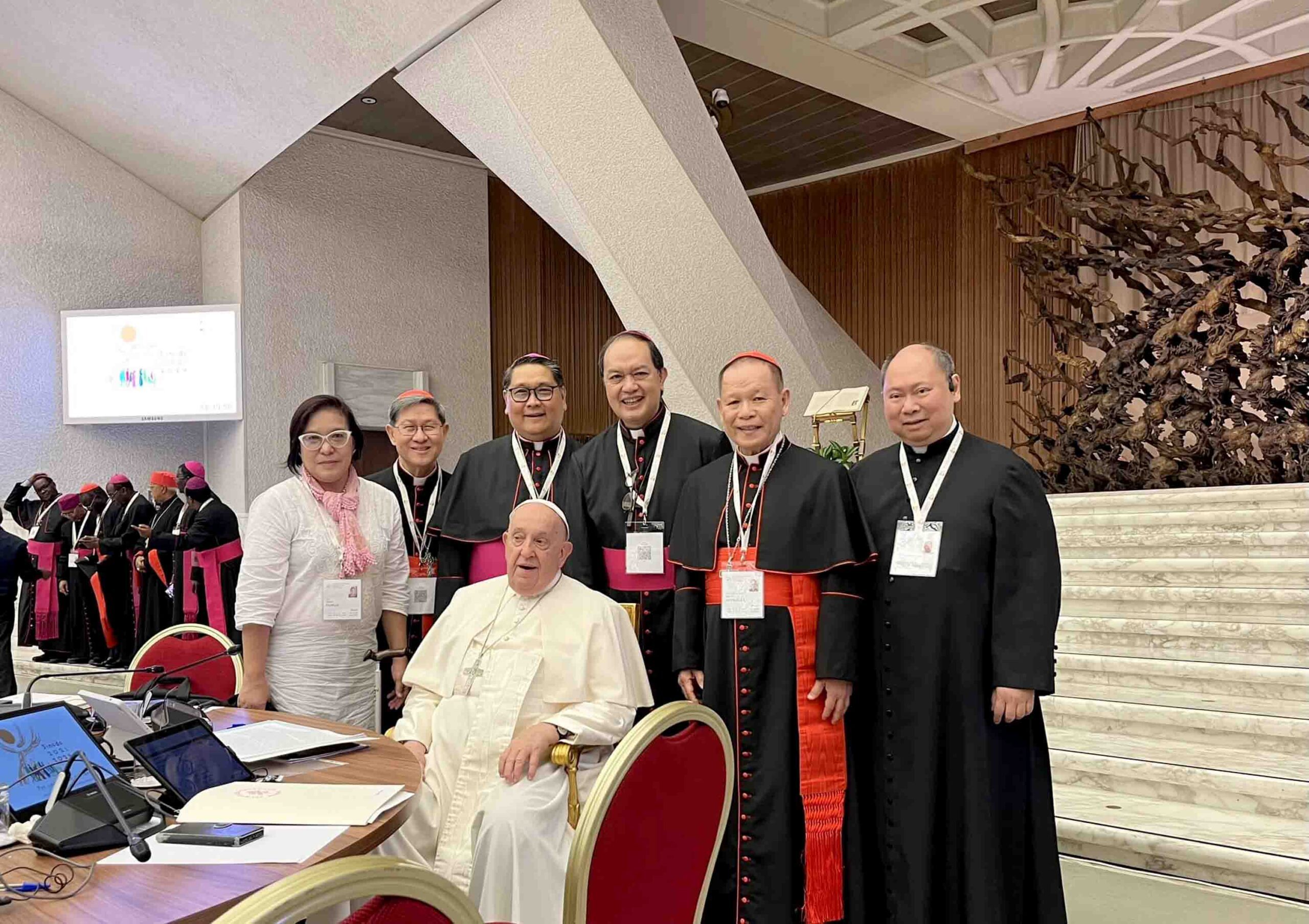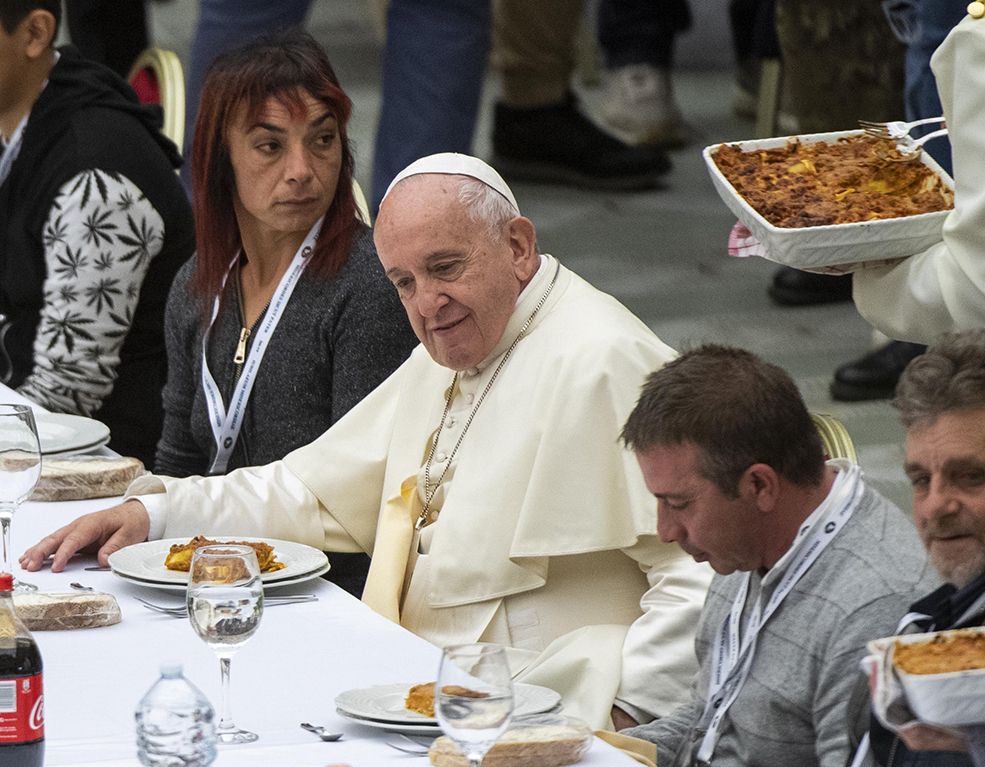What are the main challenges families face in the Philippines?
I am sure many will agree that the Philippines, together with other countries in the world, face various challenges that impact upon the families: migration of family members, ideological denial of differences between sexes, anti-birth mentality, the impact of biotechnology in the field of pro-creation, lack of housing and work, pornography, abuse of minors, inattention to persons with disabilities, lack of respect to the elderly, legal dismantling of the family and violence against women.
How is the political and social environment in the country affecting family life?
Politics play an important part in the social environment which in turn affects the family’s well-being, namely its economic and financial stability. It is very sad to say that the political climate in the Philippines is not helping the families to meet satisfactorily their social and economic needs. Families, especially the poor and the marginalized, become victims of social injustice in our country.
How do Catholic families feel when God is being mocked and the Church’s doctrine blasted in public speeches?
For my husband, myself and our grown-up children, such type of language smacked of disrespect to our Catholic faith and doctrine. Families I encountered recently from my ordinary interactions and discussions about attacking our faith and our God felt the same way. The examples of our national leaders are not acceptable to many Catholic families. We expect that our leaders should be ethical and moral in all aspects, especially in discharging their roles in government.
Is social media strengthening the bonds between family members or on the contrary, is it hampering human relationships?
I would say yes and no, depending on how social media is used. On one hand, it strengthens family bonds when the message a family member would like to express is positive, loving and good. It is natural for many to be inexpressive of their thoughts and feelings. However, social media becomes the medium of expression. On the other hand, when resentment, hatred or fear is expressed, then social media hampers human relationships. For the purpose of building, sustaining and healing family relationships, I think the best means is still the old way – personal communication. A face to face encounter to express thoughts of happiness and even sadness is the old fashioned way of communication. The sense and warmth of a touch with an eye to eye contact can soften the heart and may lead to a happy ending.
How difficult is it to pass on to the youth in general, and the children in particular, the faith?
I am a catechist and a Christian Living teacher. I interact with children and with adolescents. Passing on the faith is such a challenging task for me because of family life style, the majority of which are far from living the Catholic faith or faith in general. My experience is that knowing about the faith is captured by the youth up to the head level, but this knowledge does not penetrate the heart to reach a life of witnessing the faith. This scenario is largely due to the fact that the family life environment does not support living the Catholic faith. I believe that if parents live the faith, the children will follow. It will be easier for the children to live the faith taught by their catechists or Christian Living teachers because the parents are the models. If the parents are the heralds of the faith, the youth will be open to accept a life of faith.
You are actively involved in church activities. What are they and how much do they support your faith and sense of being an evangelizer?
Ed and I started serving the Church when we were invited to join the Family Life Ministry in 2000. Both of us became Eucharistic ministers 15 years ago. In 2011, after I finished my two-year Evangelium course at Don Bosco Center of Studies, I served as a volunteer parish catechist. Ed, on the other hand, was very much involved in social services. Our services in the parish strengthened our faith because we felt the completion of everything that we do in Jesus Christ. Our activities are tiring and consume our personal time but do not bring us to spiritual exhaustion. In fact, we have learned how to really rely on God’s mercy and grace in the things that we do.
What suggestions would you give to keep a family united?
Amoris Laetitia, the document by Pope Francis addressing the pastoral care of families published in 2016, says in number 234: “Communication is an art learned in moments of peace in order to be practiced in difficult moments.” No family is perfect, no married couple is perfect. However, communication can bridge the gap of imperfection. Family members should learn how to compose themselves and express thoughts in a peaceful manner should a difficult situation arise.
The most difficult part of communicating is when there is anger in our hearts. The challenge of learning how to communicate cannot be done during moments of tough emotions but when we are cool, open and in the spirit of prayer and being one with God.
In times of joy and relaxed moments, it would be best for families to take this opportunity to express good thoughts, complements and words of appreciation and love. No amount of money can buy thoughtful and positive words for a family member.
In keeping the family united, let us learn from Amoris Leatitia number 53: “the strength of the family lies in its capacity to love and to teach how to love. For all a family’s problems, it can always grow, beginning with love”. Communication used in the spirit of love can help solve problems that beset families.
What could parishes and dioceses do in order to assist families in difficulties?
As a parish worker exposed to various families, particularly families who experienced one or more of the family challenges mentioned, a personal visit of the parish priest, his assistant, or parish workers can be a big help in extending love and care to them. In order to make this doable and possible, we need to support the various Church commissions, in particular, Commission on the Family, BEC, and the Commission on Catechesis. The collaboration of these three commissions can create parish wide programs headed towards helping families in difficulties. This is where we can say that the Church is with us, moving as one, loving as one.
How easy or difficult is it to pray as a family? Does prayer sustain family life?
Praying as a family is not difficult if the heads, the mother and the father will do it. The father is the domestic priest and the Christ in the family. If the father wills that he bring the family together in prayer, his determination can bring him there.
Yes, prayer sustains family life. God hears our prayers, and his grace is enough to help bring a family together. I believe in Fr. Patrick Payton’s words, “A family that prays together stays together.”
I would like to quote again Amoris Laetitia, number 287 as a guidance and inspiration to all families: “The home must continue to be the place where we learn to appreciate the meaning and beauty of the faith, to pray and to serve our neighbor.”



























